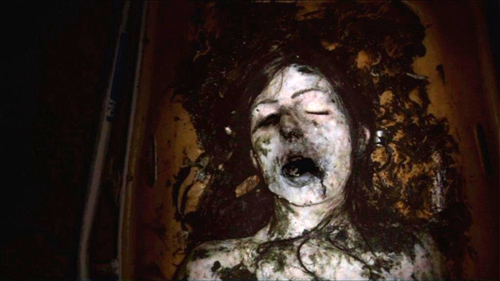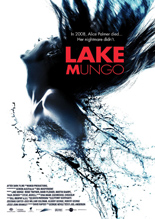
More often than not, found-footage films are the Twinkies of horror: They might satisfy at first and indulge a surface-level curiosity, but many ultimately feel airy and provide little to meaningfully digest. Plus, if you deal with any motion sickness, watching is bound to make you hurl.
But in mimicking reality, found footage has a chance to resonate with and even haunt us. (And no, not in the same way The Blair Witch Project and Paranormal Activity managed to fooled many of us with solid guerilla marketing.) Joel Anderson’s Lake Mungo dodges the pitfalls of the genre through intimacy and a surprising normalcy.
“Normal” in the sense that the family at the center of the mockumentary, the Palmers, feel tragically real. During a typical Australian night swim at a local lake, Mathew Palmer (Martin Sharpe) loses track of his sister, Alice (Talia Zucker, HBO’s Winning Time). Hours later, emergency responders recover her bloated corpse.
Her dad, Russell (David Pledger), identifies the body as her mom, June (Rosie Traynor), can’t bring herself to look at Alice’s cadaver. She doesn’t have to wait long to see Alice again, however, as her daughter’s specter starts showing up in random photos taken a few months after her death. This kick-starts an exploration of Alice’s fears, hidden life and premonition itself.

Lake Mungo isn’t completely free of structural hiccups. Though shocking, some of the twists in the third act feel a stretched thin and more inflated than Alice’s washed-up body. However, not fully embracing found footage, save its climax, breaks what might others be a linear and jump-scare-reliant jaunt. It has some abrupt and tense sequences, but thanks to the strength of the narrative and proximity we have to the Palmers’ plight, these otherwise low-reaching moments feel earned. It also helps that Lake Mungo features a corpse that puts The Ring’s Samara to shame.
Some nagging issues aside, Lake Mungo rises above the tide with how it wrestles with the inexplicable. The Palmers’ desperation to have some kind of closure feels palpable and genuine. Although the mystery they unwind may feel a little cruel and confusing, it’s not mean-spirited or needlessly provocative.
For example, Russell explains after identifying Alice’s body, car issues forced he and June to drive back to their home in reverse. It’s not scary, true, but it’s a telling metaphor that speaks to how understandably someone in their shoes just want to turn back the clock. To reject the tragedy that they just endured. And at that same time, to be pulled by unknown force back to a twisted form of Alice’s presence.
Another refreshing element of Lake Mungo is that it’s not a typical ghost story. It toys around with something paranormal, but it rebukes all of the expected explanations. For instance, Alice isn’t literally haunting, proven by mostly compelling evidence. (The film sort of drops on the ball on this with its final frame, though not so outlandishly to completely throw apart the point its making.) Instead, it explores something darker and begs an uncomfortable question: What if the ghosts that haunt us don’t belong to anyone, but emerge solely from our own fears of mortality?
Hailing Lake Mungo as timeless would be too generous, though it has plenty to set it apart from the cinematic cloth its cut from. It’s examination of what we might do when loss become too much feels reasonable, and exceptional editing paired with surprisingly strong sound design keeps it from collecting too much dust. And even the arrangement of its plot is suboptimal, Lake Mungo is a damn good advertisement for life jackets. —Daniel Bokemper

